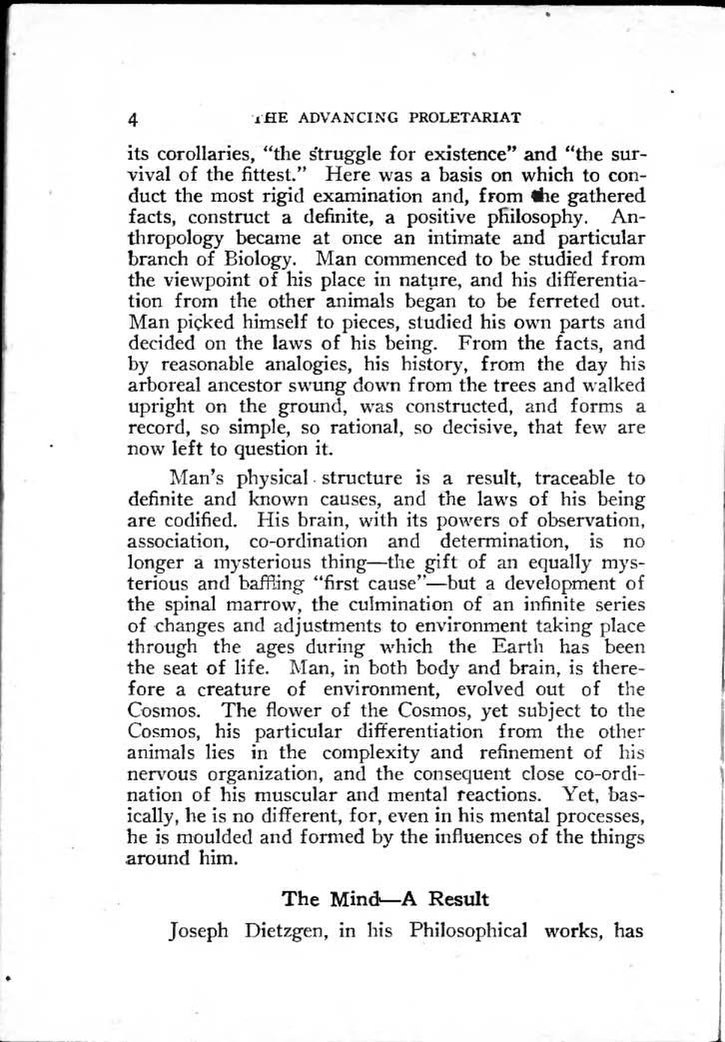its corollaries, "the struggle for existence" and "the survival of the fittest." Here was a basis on which to conduct the most rigid examination and, from the gathered facts, construct a definite, a positive philosophy. Anthropology became at once an intimate and particular branch of Biology. Man commenced to be studied from the viewpoint of his place in nature, and his differentiation from the other animals began to be ferreted out. Man picked himself to pieces, studied his own parts and decided on the laws of his being. From the facts, and by reasonable analogies, his history, from the day his arboreal ancestor swung down from the trees and walked upright on the ground, was constructed, and forms a record, so simple, so rational, so decisive, that few are now left to question it.
Man's physical structure is a result, traceable to definite and known causes, and the laws of his being are codified. His brain, with its powers of observation, association, co-ordination and determination, is no longer a mysterious thing—the gift of an equally mysterious and baffling "first cause"—but a development of the spinal marrow, the culmination of an infinite series of changes and adjustments to environment taking place through the ages during which the Earth has been the seat of life. Man, in both body and brain, is therefore a creature of environment, evolved out of the Cosmos. The flower of the Cosmos, yet subject to the Cosmos, his particular differentiation from the other animals lies in the complexity and refinement of his nervous organization, and the consequent close co-ordination of his muscular and mental reactions. Yet, basically, he is no different, for, even in his mental processes, he is moulded and formed by the influences of the things around him.
The Mind—A Result
Joseph Dietzgen, in his Philosophical works, has
